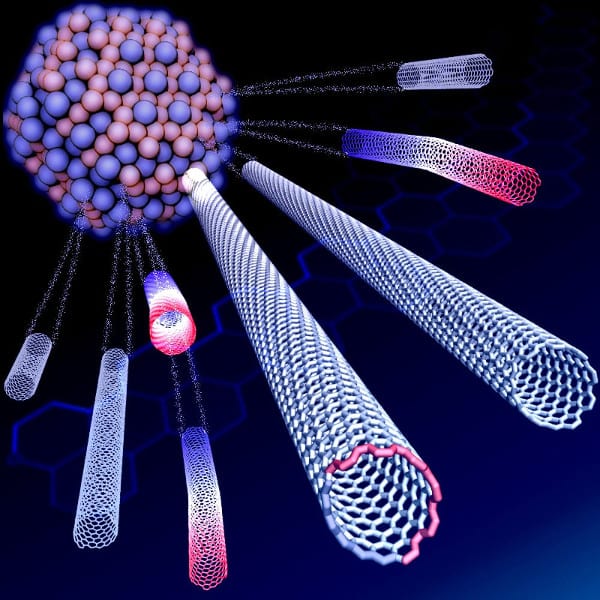‘Green’ process promises pristine graphene in bulk using waste food, plastic and other materials
A new process introduced by the Rice University lab of chemist James Tour can turn 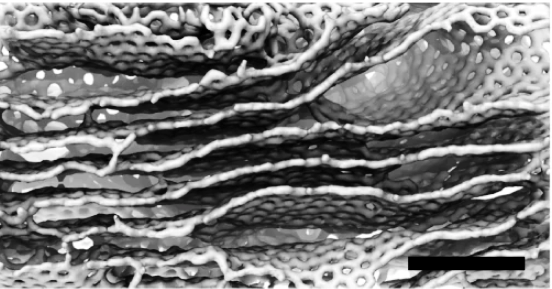 bulk quantities of just about any carbon source into valuable graphene flakes. The process is quick and cheap; Tour said the “flash graphene” technique can convert a ton of coal, food waste or plastic into graphene for a fraction of the cost used by other bulk graphene-producing methods.
bulk quantities of just about any carbon source into valuable graphene flakes. The process is quick and cheap; Tour said the “flash graphene” technique can convert a ton of coal, food waste or plastic into graphene for a fraction of the cost used by other bulk graphene-producing methods.
As reported in Nature, flash graphene is made in 10 milliseconds by heating carbon-containing materials to 3,000 Kelvin (about 5,000 degrees Fahrenheit). The source material can be nearly anything with carbon content. Food waste, plastic waste, petroleum coke, coal, wood clippings and biochar are prime candidates, Tour said. “With the present commercial price of graphene being $67,000 to $200,000 per ton, the prospects for this process look superb,” he said.
Atom-level simulations by Rice researcher and co-author Ksenia Bets confirmed that temperature is key to the material’s rapid formation.“It is amazing how state-of-the-art computer simulations, notoriously slow for observing such kinetics, reveal the details of high temperature-modulated atomic movements and transformation,” Bets said.
– See more at Rice News


 Boris I. Yakobson, the Karl F. Hasselmann Chair of Engineering, Professor of Materials Science & NanoEngineering and of Chemistry, has been named a
Boris I. Yakobson, the Karl F. Hasselmann Chair of Engineering, Professor of Materials Science & NanoEngineering and of Chemistry, has been named a 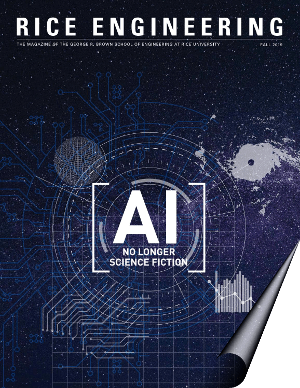 The Fall 2019 issue of the
The Fall 2019 issue of the 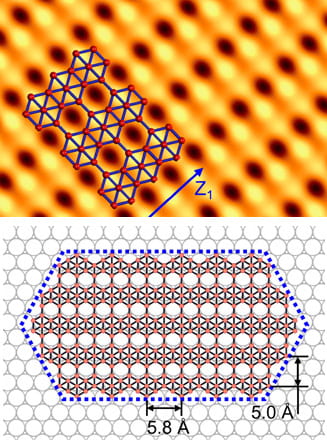
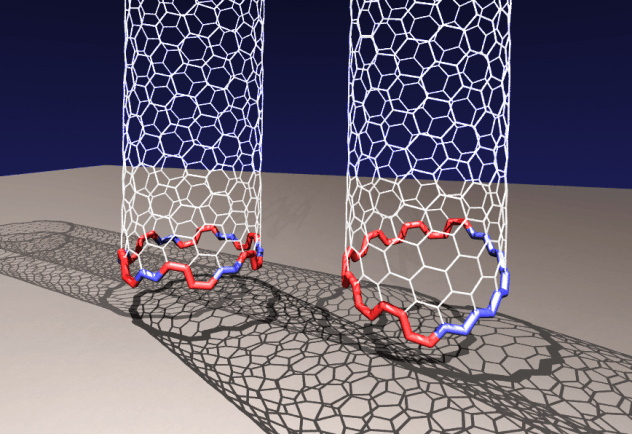 When is a circle less stable than a jagged loop? Apparently when you’re talking about carbon nanotubes.
When is a circle less stable than a jagged loop? Apparently when you’re talking about carbon nanotubes.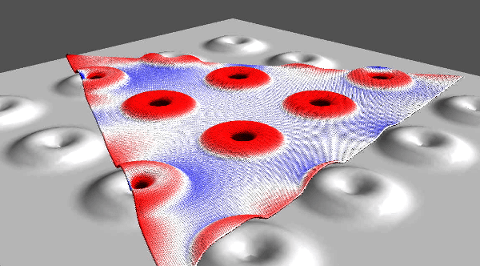
 Sunny Gupta, a third-year graduate student in Yakobson’s Group, has been awarded the Nettie S. Autrey Fellowship for 2019–2020. This award is given to one Rice graduate student in either the School of Natural Sciences or the School of Engineering who has demonstrated outstanding achievement and promise, and pays a stipend over the coming academic year.
Sunny Gupta, a third-year graduate student in Yakobson’s Group, has been awarded the Nettie S. Autrey Fellowship for 2019–2020. This award is given to one Rice graduate student in either the School of Natural Sciences or the School of Engineering who has demonstrated outstanding achievement and promise, and pays a stipend over the coming academic year.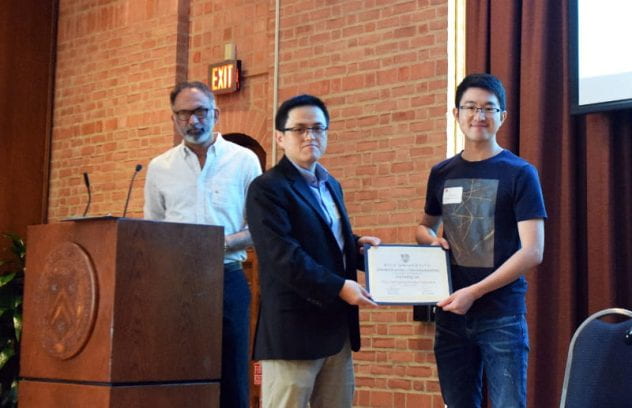 Jincheng Lei, a fourth-year graduate student in Yakobson’s Group, has received the 2019 Franz and Frances Brotzen Fellowship Award from the MSNE Department. To honor Franz R. Brotzen, the Stanley C. Moore Professor Emeritus of Materials Science and a former dean of engineering, this fellowship was established by David Lee Davidson and his wife, Patricia, and to support an endowed fellowship for graduate students researching in the area of materials science.
Jincheng Lei, a fourth-year graduate student in Yakobson’s Group, has received the 2019 Franz and Frances Brotzen Fellowship Award from the MSNE Department. To honor Franz R. Brotzen, the Stanley C. Moore Professor Emeritus of Materials Science and a former dean of engineering, this fellowship was established by David Lee Davidson and his wife, Patricia, and to support an endowed fellowship for graduate students researching in the area of materials science.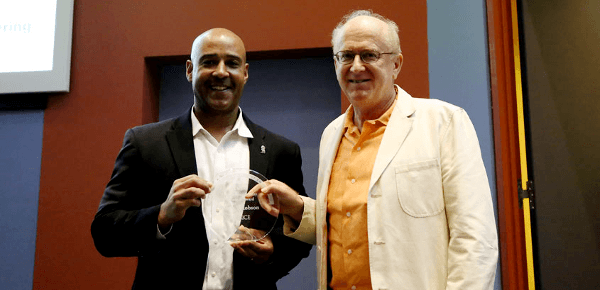
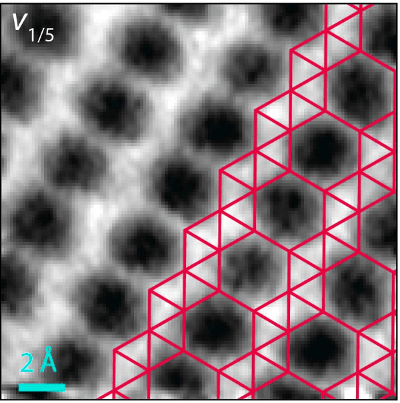
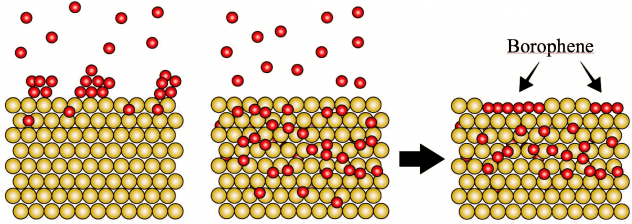
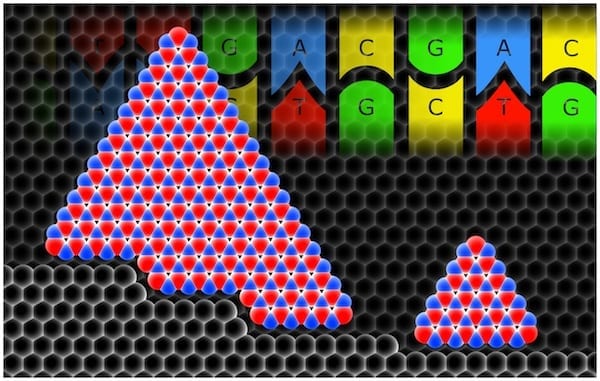
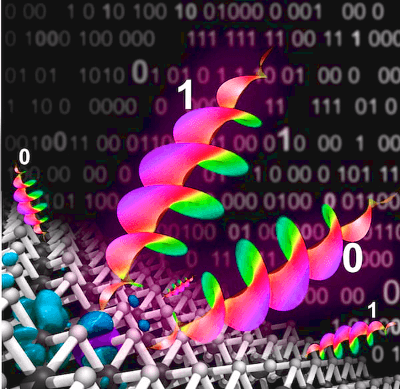 If you can make a single
If you can make a single 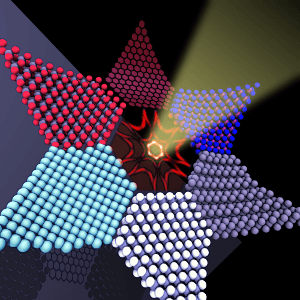 Two-dimensional materials have been a hot research topic since graphene, a flat lattice of carbon atoms, was identified in 2001. Since then, scientists have raced to develop, either in theory or in the lab, novel 2D materials with a range of optical, electronic and physical properties.
Two-dimensional materials have been a hot research topic since graphene, a flat lattice of carbon atoms, was identified in 2001. Since then, scientists have raced to develop, either in theory or in the lab, novel 2D materials with a range of optical, electronic and physical properties.